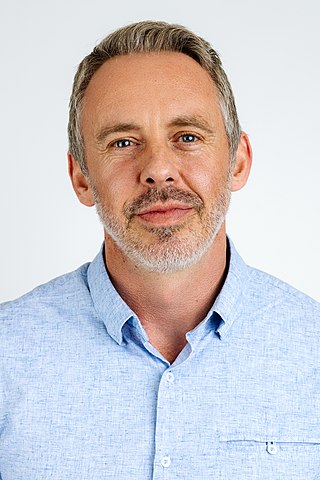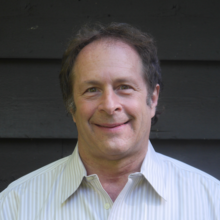
3,4-Methylenedioxymethamphetamine (MDMA), commonly known as ecstasy, and molly or mandy, is a potent empathogen–entactogen with stimulant and minor psychedelic properties. Investigational indications include as an adjunct to psychotherapy in the treatment of post-traumatic stress disorder (PTSD) and social anxiety in autism spectrum disorder. The purported pharmacological effects that may be prosocial include altered sensations, increased energy, empathy, and pleasure. When taken by mouth, effects begin in 30 to 45 minutes and last three to six hours.

Club drugs, also called rave drugs or party drugs, are a loosely defined category of recreational drugs which are associated with discothèques in the 1970s and nightclubs, dance clubs, electronic dance music (EDM) parties, and raves in the 1980s to today. Unlike many other categories, such as opiates and benzodiazepines, which are established according to pharmaceutical or chemical properties, club drugs are a "category of convenience", in which drugs are included due to the locations they are consumed and/or where the user goes while under the influence of the drugs. Club drugs are generally used by adolescents and young adults.

Empathogens or entactogens are a class of psychoactive drugs that induce the production of experiences of emotional communion, oneness, relatedness, emotional openness—that is, empathy or sympathy—as particularly observed and reported for experiences with 3,4-methylenedioxymethamphetamine (MDMA). This class of drug is distinguished from the classes of hallucinogen or psychedelic, and amphetamine or stimulants. Major members of this class include MDMA, MDA, MDEA, MDOH, MBDB, 5-APB, 5-MAPB, 6-APB, 6-MAPB, methylone, mephedrone, GHB, αMT, and αET, MDAI among others. Most entactogens are phenethylamines and amphetamines, although several, such as αMT and αET, are tryptamines. When referring to MDMA and its counterparts, the term MDxx is often used. Entactogens are sometimes incorrectly referred to as hallucinogens or stimulants, although many entactogens such as ecstasy exhibit psychedelic or stimulant properties as well.
"Severe dopaminergic neurotoxicity in primates after a common recreational dose regimen of MDMA ("ecstasy")", is an article by George A. Ricaurte that was published in September 2002 in the peer-reviewed journal Science, one of the world's top academic journals. It was later retracted; instead of using MDMA, methamphetamine had been used in the test.
Psychedelic therapy refers to the proposed use of psychedelic drugs, such as psilocybin, MDMA, LSD, and ayahuasca, to treat mental disorders. As of 2021, psychedelic drugs are controlled substances in most countries and psychedelic therapy is not legally available outside clinical trials, with some exceptions.
The Multidisciplinary Association for Psychedelic Studies (MAPS) is an American nonprofit organization working to raise awareness and understanding of psychedelic substances. MAPS was founded in 1986 by Rick Doblin and is now based in San Jose, California.

David Earl Nichols is an American pharmacologist and medicinal chemist. Previously the Robert C. and Charlotte P. Anderson Distinguished Chair in Pharmacology at Purdue University, Nichols has worked in the field of psychoactive drugs since 1969. While still a graduate student, he patented the method that is used to make the optical isomers of hallucinogenic amphetamines. His contributions include the synthesis and reporting of escaline, LSZ, 6-APB, 2C-I-NBOMe and other NBOMe variants, and several others, as well as the coining of the term "entactogen".

The National Institute on Drug Abuse (NIDA) is a United States federal government research institute whose mission is to "advance science on the causes and consequences of drug use and addiction and to apply that knowledge to improve individual and public health."
George A. Ricaurte is a neurologist and researcher who works at the Johns Hopkins School of Medicine in the Department of Neurology.
Paul Grof is a Czech-born psychiatrist in Canada who was a member of the World Health Organization committee that evaluated ecstasy. Rick Doblin notes:

Joe Green is a serial social entrepreneur and investor based in San Francisco, CA. He is the co-founder and President of the Psychedelic Science Funders Collaborative, a nonprofit donor network that supports research on psychedelic medicine. Green is also the co-founder of Treehouse, a company that develops community living apartment complexes in Los Angeles, CA.

Julie Holland is an American psychopharmacologist, psychiatrist, and author. She is the author of five books, including Weekends at Bellevue: Nine Years on the Night Shift at the Psych ER, a memoir documenting her experience as the weekend head of the psychiatric emergency room at Bellevue Hospital in New York City An advocate for the appropriate use of consciousness expanding substances as part of mental health treatment, she is a medical monitor for MAPS studies, which involve, in part, developing psychedelics into prescription medication.
Psynapse is a nonprofit organization based in Oslo, Norway, which aims to increase access to MDMA and psychedelics for medical and scientific purposes, as well as advocating for the legalization of psychedelics for human rights reasons. Psynapse was founded in 2015 by researchers Pål-Ørjan Johansen and his wife, Teri Krebs.

Reid Robison is an American board-certified psychiatrist known primarily for his work with psychedelic medicines. As an early adopter and researcher of the use of ketamine in psychiatry, Robison has made significant contributions to ketamine-assisted psychotherapy (KAP) and other treatment modalities using ketamine for mental health conditions. He previously served as coordinating investigator for a study on MDMA-assisted psychotherapy for eating disorders, sponsored by the Multidisciplinary Association for Psychedelic Studies (MAPS), and he continues to lead research and psychiatric clinical trials involving psychedelics. To date, Robison has guided thousands of ketamine-assisted therapy sessions and Spravato dosing sessions. He currently serves as Medical Director of Center for Change, an eating disorder treatment center in Utah, and Chief Clinical Officer of Numinus, a Vancouver-based mental health company focused on psychedelic research and treatments. Robison is an adjunct professor at both the University of Utah and Brigham Young University.
The Spring Grove Experiment is a series of lysergic acid diethylamide (LSD) studies performed from 1963 to 1976 on patients with psychotic illnesses at the Spring Grove Clinic in Catonsville, Maryland. These patients were sponsored by a federal agency called the National Institute of Mental Health to be part of the first study conducted on the effects of psychedelic drugs on people with schizophrenia. The Spring Grove Experiments were adapted to study the effect of LSD and psychotherapy on patients including alcoholics, heroin addicts, neurotics, and terminally-ill cancer patients. The research done was largely conducted by the members of the Research Unit of Spring Grove State Hospital. Significant contributors to the experiments included Walter Pahnke, Albert Kurland, Sanford Unger, Richard Yensen, Stanislav Grof, William Richards, Francesco Di Leo, and Oliver Lee McCabe. Later, Spring Grove was rebuilt into the Maryland Psychiatric Research Center where studies continued to be performed for the advancement of psychiatric research. This study on LSD is the largest study on psychedelic drugs to date.

Psilocybin therapy is the use of psilocybin in treating a range of mental health conditions, such as depression, anxiety, addictions, obsessive compulsive disorder, and psychosis. It is one of several forms of psychedelic therapy under study. Psilocybin was popularized as a psychedelic recreational drug in the 1970s and was classified as a Schedule I drug by the DEA. Research on psilocybin as a medical treatment was restricted until the 1990s because of the sociocultural fear of dependence on this drug. As of 2022, psilocybin is the most commonly researched psychedelic due to its safety and low potential for abuse and dependence. Clinical trials are being conducted at universities and there is evidence confirming the use of psilocybin in the treatment of depression, PTSD and end of life anxiety.
MDMA-assisted psychotherapy is the use of prescribed doses of MDMA as an adjunct to psychotherapy sessions. Research suggests that MDMA-assisted psychotherapy for post-traumatic stress disorder (PTSD), including Complex PTSD, might improve treatment effectiveness. In 2017, a Phase II clinical trial led to "breakthrough therapy" designation by the US Food and Drug Administration (FDA) for potential use as a treatment for PTSD.

Mind Medicine Inc., also known as MindMed, is a New York-based psychedelic medicine biotech company that develops psychedelic-inspired medicines known as psychoplastogens and therapies to address addiction and mental illness.
Psychoplastogens are a group of small molecule drugs that produce rapid and sustained effects on neuronal structure and function, intended to manifest therapeutic benefit after a single administration. Several existing psychoplastogens have been identified and their therapeutic effects demonstrated; several are presently at various stages of development as medications including ketamine, MDMA, scopolamine, and the serotonergic psychedelics, including LSD, psilocin, DMT, and 5-MeO-DMT. Compounds of this sort are being explored as therapeutics for a variety of brain disorders including depression, addiction, and PTSD. The ability to rapidly promote neuronal changes via mechanisms of neuroplasticity was recently discovered as the common therapeutic activity and mechanism of action.
Psychedelic treatments for trauma-related disorders are the use of psychedelic substances, either alone or used in conjunction with psychotherapy, to treat trauma-related disorders. Trauma-related disorders, such as post-traumatic stress disorder (PTSD), have a lifetime prevalence of around 8% in the US population. However, even though trauma-related disorders can hinder the everyday life of individuals with them, less than 50% of patients who meet criteria for PTSD diagnosis receive proper treatment. Psychotherapy is an effective treatment for trauma-related disorders. A meta-analysis of treatment outcomes has shown that 67% of patients who completed treatment for PTSD no longer met diagnostic criteria for PTSD. For those seeking evidence-based psychotherapy treatment, it is estimated that 22-24% will drop out of their treatment. In addition to psychotherapy, pharmacotherapy (medication) is an option for treating PTSD; however, research has found that pharmacotherapy is only effective for about 59% of patients. Although both forms of treatment are effective for many patients, high dropout rates of psychotherapy and treatment-resistant forms of PTSD have led to increased research in other possible forms of treatment. One such form is the use of psychedelics.









